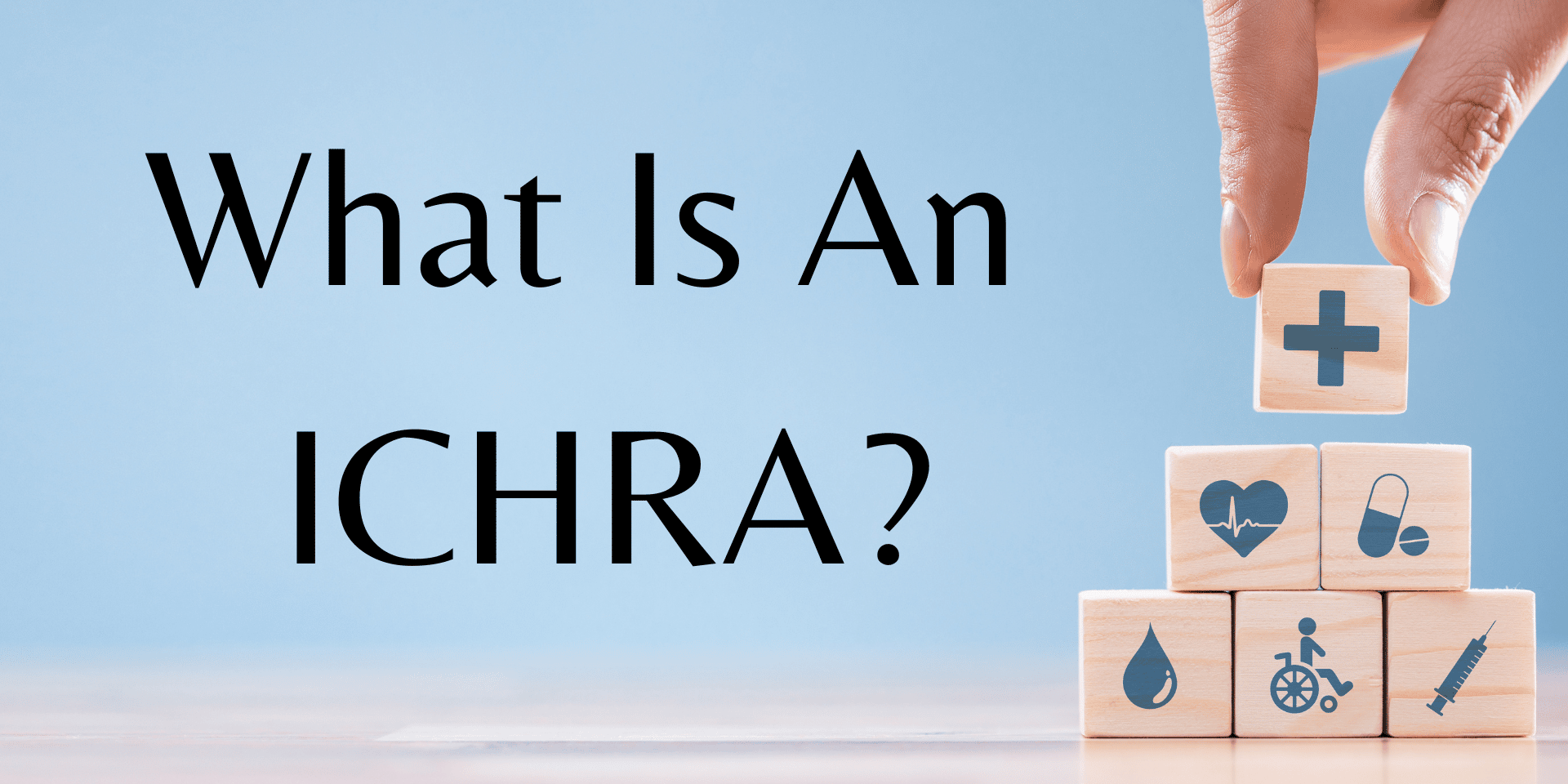What is an ICHRA? Is it Right for Your Business?
As more and more brokers reach out to employers stating, “we can get your employees free health insurance”, understand what they are talking about. Nothing is free and a business needs to understand the whole picture.
More employers are opting to fund accounts that their employees can draw on to purchase their own health insurance. They can purchase that coverage either on an Affordable Care Act exchange or on the open individual market. Individual Coverage Health Reimbursement Arrangements (ICHRAs) offer employees a set budget for premiums. This allows them to pick the health care plan that works best for them or select what is affordable. What’s best or affordable may be two different things.
Some companies are exploring these arrangements in lieu of providing their group health benefits. This allows them to save money and reduce the administrative burden. These plans do have their drawbacks and are not for all employers. So, it’s important to understand how they work and their limitations.
What is an ICHRA?
ICHRAs, created by regulations promulgated by the IRS in 2019, allow employers subject to ACA coverage requirements to forgo purchasing insurance for employees and instead provide extra funds for them to purchase their own health insurance coverage. Here are some ICHRA basics:
- Regulations allow employers to offer ICHRAs to some of their employees, and group health benefits to others.
- Some accounts are restricted to reimbursing only for health insurance premiums, while others reimburse for out-of-pocket medical expenses.
- The employer funds the account with a set amount over the course of the year. The employee pays for their premiums and gets reimbursed by showing proof of payment.
- Employees don’t pay taxes on health care spending reimbursed through the ICHRA.
- Accounts are not portable when employment ends.
- For applicable large employers subject to the ACA employer mandate, the ICHRA funding must meet the ACA’s coverage and affordability requirements. It must be enough to purchase the lowest-cost silver plan on the marketplace. There is currently no limit on how much an employer can fund the ICHRA.
Not a Good Fit for All Employers
There are many restrictions to ICHRAs and drawbacks that employers need to consider:
- The employee loses the employer-sponsored coverage they’re accustomed to. They have to find coverage that fits within the budget their employer provides.
- Can cause resentment- Offering group health plans to higher-wage staff and ICHRAs to lower-wage workers, may view it as a two-tier system.
- Having an ICHRA can affect recruitment efforts and retention, as most workers are accustomed to their group health benefits. Most individual policies have network restrictions.
- Employees may choose plans that leave them with higher premiums or higher out-of-pocket expenses on the back end. Most may look at the premium and not realize the out-of-pocket exposure they have with the individual plan. In our experience, most policies people are buying on the Marketplace exchange are plans with higher deductibles and out-of-pocket costs. This leaves the employee with a big financial exposure.
- Employees must use the funds to purchase health insurance and they cannot enroll in their spouse’s health plan.
- Here’s a biggie. If your ICHRA is considered affordable according to ACA rules, employees lose the premium tax credit if they opt out of the ICHRA. If they deem your ICHRA unaffordable under ACA rules, they can claim the premium tax credit and waive their right to the ICHRA.
What if my employees qualify for premium tax credits?
With an ICHRA, employees who qualify for a premium tax credit will choose whether they want to participate in the ICHRA or collect their tax credit based on whether the ICHRA is considered affordable.
If an ICHRA allowance is unaffordable, employees have the option to opt in or out of the ICHRA based on who is giving them the most money. If their premium tax credit is larger than the allowance, they can opt out of the ICHRA and collect your credit.
In most cases, the employer offers a minimum contribution to the ICHRA, so the premium is not affordable, forcing those employees to the Marketplace for coverage. In this situation, employers are not offering any benefit to the employee who qualifies for a tax credit. The employee is responsible for the total premium not covered by the subsidy.
A study by the country’s largest employer trade association, the U.S. Chamber of Commerce, shows that having robust health coverage not only boosts recruitment and retention, but it produces a significant return on investment – 47% – including hundreds of billions of dollars in increased productivity.
The takeaway
Sticking with a traditional group health plan will help you with recruitment and retention, but for some employers who look to attract workers who do not put a priority on employee benefits, these types of plans may be a good fit.
Making a move to one of these plans takes careful consideration and planning. Talk with someone who is an expert in employee benefits and individual plans. We will help you sort through the facts and fiction about these accounts. Still today, group health plans are the predominant choice among employers and employees.








